Then they talked about old times, telling the obligatory story about how it all started. How a surly farmer (you) was persuaded to rent out the old schoolhouse to a bunch of hairy communists from the city. How the surly farmer eventually joined them and grew a beard. All the parties, and the harvest festival, and the magazine they printed on a hand-cranked printing press in the cellar; and the first commune baby (me), tiny and fat and precocious, who could chant “U.S. out of Vietnam, Laos and Cambodia!” by the age of two. We didn’t mention Mum. Then it was over, everyone went home, and I don’t expect I’ll see any of them again except Björn and Maggie.
You’ll be buried next to Sten and Alva, your parents that I know nothing about. You never told me anything about them, only that they were sickly and died early. It seems to be a family trait.
— Viveka
Hi, Dad.
I finished the paperwork last week. I figured I’m between jobs anyway, so I might as well go on a trip. I’m sitting at the kitchen table in the janitor’s house at Munsö. That makes me the fourth generation to own the schoolhouse.
I brought Squeaky. She seems familiar with the place. She catches mice, crunching on them under the table. She’s a tidy eater, leaving only the hearts. I find them here and there, lying on the floor like red raisins.
You must have been here in the spring. The hothouse is full of squash, tomatoes, beans, and pumpkins, ready for harvest. The pantry’s full. There’s even firewood, and it’s clean. I found mint tea. It’s the same sort you used to drink when I was little. These are the smells from when things were good – firewood, mint tea, and old house.
I used to sleep on the sofa bed in the kitchen, you in the bedroom. You were too tall for the sofa bed, you said, otherwise you’d let me have the bedroom. You were always a little hunched over, hitting your head on doorjambs and lamps. I can see you standing over the sofa bed, reaching out with a long hand to pull the covers all the way up to my chin. Snug like a dolma, you would say.
I’m sleeping in the bedroom tonight. I’ve grown too tall for the sofa bed.
If only you’d kept a journal. The only thing that tells me how much time you spent here are the newspapers by the stove. About once a year, for a few weeks at a time, just like Björn said. According to (which you insisted on reading despite calling it a bourgeoisie rag) , the last time was in May.
I went over to the schoolhouse today. The front door had warped, and was difficult to get open. In the cloakroom I turned right and the long tables still stood there, and the benches, and the serving table at the back. The breeze blowing in from the open door stirred up dust in the air. The flypapers spiraling down from the ceiling were black with little corpses. I went into the kitchen at the back: the old orange curtains still hanging in the windows, the massive rounded refrigerator graying in the corner. Through the kitchen into the common room with its brown corduroy couches and the IKEA bookshelves: dust and silence. The smell of wood and mold. Through the common room, full circle into the cloakroom. Up the steep stairs at the back of the cloakroom, with the rosette window halfway up. The attic with its bedrooms that used to be storage, like empty monk cells in a row. I remember everyone leaving: Lena packing the huge toy turtle, its plush skin worn through where I had sat on it every day. I cried when she stuffed it into a box.
The empty gravel driveway, the hothouse that slowly went to seed, the absence of voices, before you boarded up the schoolhouse and janitor’s house and packed our things into the car.
In the photos of you and Mum, you’re so in love, so lost in her. One of the pictures is of the schoolhouse steps. She’s standing with a hand on the rail, looking into the camera. She’s wearing a knee-length black dress with a white yin-yang pattern, her belly big and round. You’re wearing jeans and an orange shirt, one hand resting on her belly. Ignoring the photographer, you’re looking sideways at Mum with a soft smile. She’s so tall. You’re not hunched over next to her. You smile like that in all the photos from then, Dad.
— Viveka
Hi Dad.
I got your bike out from the shed – you kept it in good shape – and went down to the old co-op for food. I used the forest path that goes past the lake. It took about half an hour when I was a kid, but this time I must have taken a wrong turn; here and there I couldn’t recognize where I was. It took me an hour to get there. Things are supposed to feel much smaller when you visit places from your childhood. The old co-op was unrecognizable. They’ve renovated. Not that it helps. They don’t know what tofu is.
This is my very first memory: it was August. I was three years old. Vladimir Vysotsky was rasping through the gramophone. The air smelled of damp wool and crayfish and toast. It was getting cold. You opened your cardigan so I could climb inside, and then buttoned it up again so that I sat there like a kangaroo pup, head sticking out, your beard tickling at my neck. When you sang along in the chorus, my whole back vibrated. Mum sat across the table. She was staring at us, her face very still.
Of course she refused to give birth in a hospital. Maggie has told me so many times. She gave birth in the janitor’s house, assisted by one of the commune members (Annika?) who happened to be a certified midwife. It took eleven hours. I was healthy and weighed three-and-a-half kilos. You didn’t take me to the hospital. I wasn’t to be registered, checked, or vaccinated. You wanted the authorities to stay out of our lives.
It’ll be the twenty-fifth anniversary of her disappearance, soon.
“Do you know what your father used to say,” Maggie said once. “He used to say that your mother just came out of the forest one day.”
I’m having tea on the veranda. It’s still warm out. A few more weeks and the forest will be full of mushrooms. And all the vegetables in the hothouse, I wonder if I could learn to can them so they don’t spoil. Weren’t Lena and Peter fanatics about that stuff?
The cell phone rang for the first time since I arrived here. It was my case worker at the unemployment center who wanted to know why I didn’t show up for our meeting yesterday. It had completely slipped my mind. Caseworker wants me to report for inspection immediately. If I don’t provide a list of all the jobs I’ve applied for this month, my benefits will be cut off. I figure that’s about to happen anyway, so what difference does it make? I’ll be cut off, and then I’ll have to apply for welfare, and they’ll tell me I can’t have any because I own property. Then I’ll either have to sell this place, or tell the welfare people to sod off. In which case I’ll settle out here and live on mushrooms and canned vegetables. I wonder how long I could do that. I wonder how long it would take before anyone except my caseworker missed me.
— Viveka
Hi Dad.
I’ve been weeding in the hothouse. Some of the plants died during the summer, others are growing wild. It’s not much of a hothouse, what with the hole in the roof. The vegetables going nuts are the ones that got rain on them. I don’t think I could survive on them if I lose my benefits.
This is my second memory: I know now that it’s about a week after the crayfish party. I was sitting in the sandbox outside the house. The sand was cold and damp under the dry top layer. I had taken my shoes off, digging into the chill with my toes. Mum kissed my forehead and then she walked away. She was wearing the red dress. She was barefoot. Mum walked in amongst the trees and there was a tinkling sound on the air, like tiny bells.
You came back from the store to find me howling in the sandbox. You put off calling the police until the next day. You tried to report her missing, but were told she didn’t exist. She wasn’t in the national registry.
Читать дальше
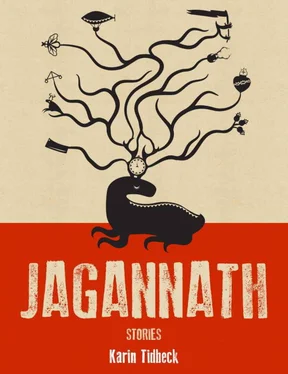
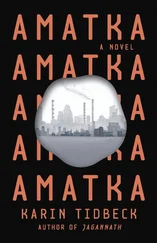
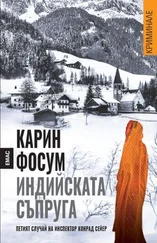
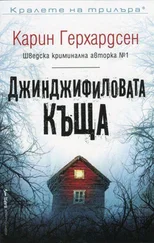
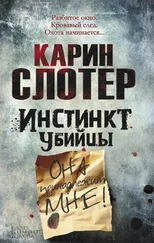
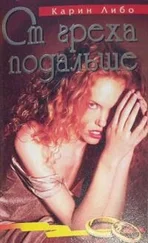
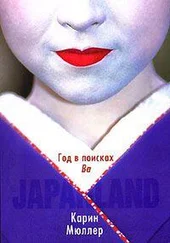



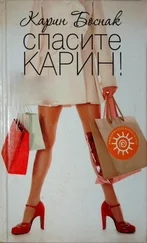

![Карин Тидбек - Аматка [ЛП]](/books/438406/karin-tidbek-amatka-lp-thumb.webp)